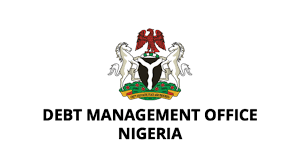Paragraph 1: The Nigerian Debt Management Office’s February Bond Reissuance
The Debt Management Office (DMO) of Nigeria reintroduced N350 billion worth of Federal Government Saving Bonds in February 2025. This reissuance comprised two tranches: N200 billion of the 19.30% FGN APR 2029 bond and N150 billion of the 18.50% FGN FEB 2031 bond. The bonds were offered via auction, with the settlement date set for Wednesday. This reissuance offered investors another opportunity to acquire these bonds, contributing to the government’s fundraising efforts for infrastructure projects and bridging the 2025 budget deficit. The DMO’s action followed a successful January bond auction that raised N669.94 billion, exceeding the N450 billion target. The oversubscription demonstrated strong investor interest in Nigerian sovereign debt.
Paragraph 2: Market Dynamics and Investor Sentiment
The week leading up to the February bond auction saw a dynamic FGN Bonds Market. Initially, trading activity focused on the 2029 and 2035 bonds, with yields at 20.70% and 21.55%, respectively. However, the Monetary Policy Committee’s (MPC) decision to maintain existing parameters and the DMO’s bond offer circular injected bullish sentiment into the market. The exclusion of the 2035 bond from the February offer, coupled with the attractive yields of the 2029 and 2031 bonds, spurred increased trading activity and compressed yields. Trades were executed on the 2031, 2034, and 2035 bonds at yields as low as 19.90%, 18.80%, and 18.00%, respectively.
Paragraph 3: Market Analysis and Yield Trends
Comercio Partners, an investment house, observed a significant decline in average benchmark yields, attributing it to the MPC meeting and the bond offer circular. They reported a 66 basis point drop in average yield, closing at 19.08%. Cowry Assets Management also highlighted the bullish trend, noting a 78 basis point decrease in average yield to 19.47%. They attributed this to strong investor confidence and the expectation of attractive rates at the upcoming auction. The high-yield environment and the potential for positive real returns fueled demand, particularly for short- and mid-term instruments like the 2027, 2030, 2035, and 2039 bonds.
Paragraph 4: Investor Focus and Market Outlook
Analysts predicted that investor attention would be firmly fixed on the FGN bonds auction. They anticipated a positive trajectory in the fixed-income market, driven by attractive yields sustaining investor participation in the secondary market. The DMO’s plan to offer N350 billion – N200 billion for the April 2029 maturity and N150 billion for the February 2031 maturity – was expected to be a focal point. This auction is crucial for the government’s financing plans, particularly for infrastructure development and managing the budget deficit. The market’s response would indicate investor confidence in the government’s fiscal strategy.
Paragraph 5: Contextualizing Nigeria’s Debt Management Strategy
The DMO’s bond issuances are part of a broader strategy to manage Nigeria’s public debt. The government aims to balance domestic and foreign borrowing to fund its development agenda while ensuring debt sustainability. The bond market provides an avenue for raising capital domestically, reducing reliance on external financing and mitigating exchange rate risks. The reissuance of existing bonds offers investors a familiar and liquid investment option, while also helping the DMO manage the maturity profile of its debt portfolio. The success of these auctions reflects investor appetite for Nigerian sovereign debt and the perceived stability of the market.
Paragraph 6: Implications for the Nigerian Economy
The outcome of the bond auction has implications for the broader Nigerian economy. Successful fundraising at favorable rates enables the government to invest in critical infrastructure projects, stimulating economic growth and creating jobs. Furthermore, a robust bond market contributes to the development of the financial sector and provides investors with a reliable avenue for fixed-income investments. However, the government also needs to carefully manage its debt levels to ensure long-term fiscal sustainability. Continued investor confidence in the Nigerian economy is crucial for attracting further investments and promoting economic growth.


